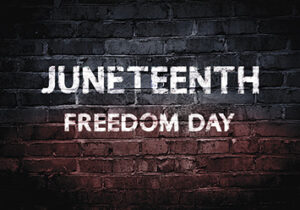Celebration traced to freeing of slaves in Texas in 1865
By TOM EMERY
Correspondent

Juneteenth is the newest federal holiday in the calendar. Its origins, however, date to the final weeks of the Civil War.
The commemoration arose from the freeing of slaves in Texas on June 19, 1865, some 11 weeks after the surrender of Robert E. Lee at Appomattox and the assassination of President Abraham Lincoln.
The act helped fulfill the promise of the Emancipation Proclamation, issued by Lincoln on Sept. 22, 1862. The proclamation took effect Jan. 1, 1863, and many Americans today believe that all enslaved people were then freed.
But the proclamation only applied to states in rebellion, meaning that slavery continued in the border states of Missouri, Kentucky, Maryland and Delaware.
Lincoln’s proclamation also had to be enforced. While large parts of the South were under Federal control by 1863, Texas was occupied by small numbers of Union soldiers and had seen relatively little military action. As a result, slavery continued with little threat in Texas.
By 1865, some 250,000 blacks still were enslaved in Texas. Finally, Major General Gordon Granger arrived at Galveston on June 19,1865 to assume command of a Union force of 2,000 troops.
That same day, Granger read General Order No. 3, declaring that, “in accordance with a proclamation from the Executive of the United States, all slaves are free” with “an absolute equality of personal rights and rights of property between former masters and slaves.”
Still, not all blacks were emancipated. In some cases in Texas, owners did not inform their slaves until after the harvest, months after Granger’s declaration. Slavery throughout the U.S. was finally banned with the ratification of the 13th Amendment on Dec. 6, 1865.
FIRST FREEDOM CELEBRATION
On the first anniversary of the Galveston declaration, free blacks in Texas organized a celebration dubbed “Jubilee Day.” That evolved into “Juneteenth” festivities, though there is debate as to how the name of the holiday originated.
Many believe the name is a combination of the month and day, June 19. Others theorize that the words “Jubilee Day” somehow morphed into “Juneteenth.”
Texas was the center of Juneteenth celebrations for decades, and many of the early festivities drew huge crowds.
In the early-to-mid-20th century, the holiday continued in pockets as blacks from Texas emigrated across the nation, taking Juneteenth with them. However, the onset of Jim Crow laws, particularly in the South, slowed the growth of Juneteenth.
JUNETEENTH SPREADS
As more blacks left Texas after World War II, Juneteenth continued to spread, though the holiday languished throughout much of America until the 1970s and 1980s, when substantial celebrations were held in some American cities.
In 1980, Texas became the first state to officially establish Juneteenth as a holiday. Twelve years later, Juneteenth was recognized in all 50 states.
On June 17, 2021, Juneteenth was established as a federal holiday, the first since the creation of Martin Luther King Day in 1983.
A HOLIDAY FOR ALL
Critics have charged that the recent legislation for Juneteenth has been purely for political reasons.
But many others believe the actions are long overdue, and that the holiday is not just for blacks. Among them is Kathryn Harris, retired Director of Library Services at the Abraham Lincoln Presidential Library and Museum in Springfield, Ill.
“It really should have been done a long time ago,” she said. “And Juneteenth is truly a day for everyone, not just African-Americans. We talk about diversity, equity and inclusion today, but we’re really still working on the stuff that was talked about with the Emancipation, the end of the Civil War, and Juneteenth itself.
“To me, Juneteenth is a time of reflection, a time to think about where we are, where we’ve been, and the work that’s left,” concluded Harris. “And just like in the early celebrations, it’s a time of hope.”
(Tom Emery is a freelance writer and historical researcher from Carlinville, Ill. He may be reached at 217-710-8392 or ilcivilwar@yahoo.com.)


